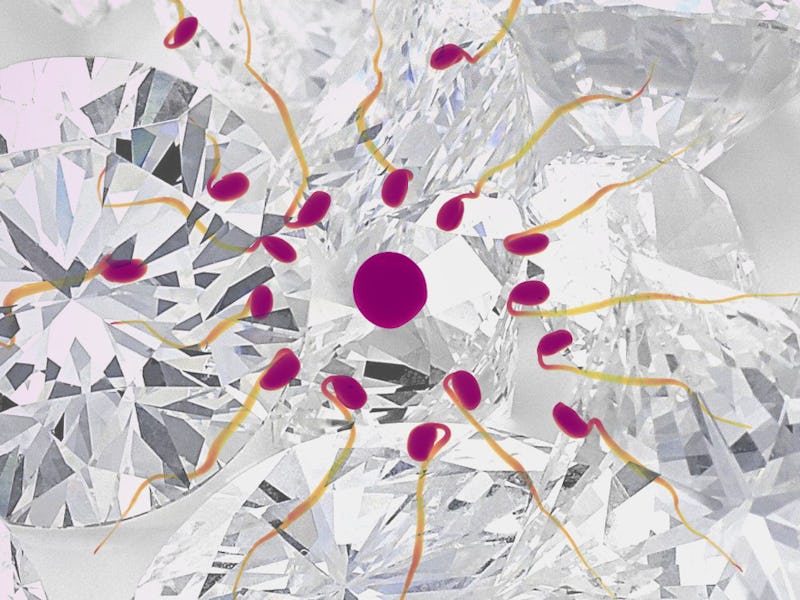Babies get made when sperm shoots through the vagina, cervix, and uterus like a guided missile, penetrating the cell membrane of an egg. If a couple is trying to get pregnant through in vitro fertilization, this process gets moved to a love motel known as a petri dish. These dishes, typically made of a type of plastic called polystyrene, are basically a Motel 6 for sperm: They’ll either do the job right, or the sperm may not survive the end of the night.
However, scientists now report that the best thing for sperm is to place them in Petri dishes covered in diamonds. It’s time to move up to the Ritz Carlton, baby.
This study from Germany’s Ulm University is the latest to make the bizarre connection between diamonds and sperm and conclude that human sperm lives longer when it hangs out on diamond surfaces. In the Annals of Translational Medicine, the scientists write that Petri dishes coated in nano-crystalline diamonds contained 300 percent more “Grade A” sperm cells than polystyrene dishes after sperm cells were left on the dishes for an hour. In this situation, Grade A sperm refers to those that move rapidly and are relatively likely to fertilize an egg.
Left, petri dish covered in nanodiamonds.
In a previous study, scientists concluded that a higher percentage of sperm could survive in Petri dishes covered in a nanolayer of diamond compared to polystyrene in a 42-hour period, but they weren’t able to quantify how many lived. This study puts a number on the percentage of sperm that can survive in diamond dishes. Making the switch to these dishes could be a major boon to couples hoping to start a family, and, surprisingly, not one that will be too financially costly. Diamond-coated Petri dishes cost about $100, which is a small price to pay when folded into the entirety of an IVF procedure, which usually totals at $10,000.
Why diamonds and sperm get along so well comes down to cell-disrupting molecules called reactive oxygen species (ROS). Like most cells, sperm naturally secrete these harmful molecules. That’s fine when sperm is squirming through the body — they are neutralized when they mind to other molecules. But when sperm is in a Petri dish made of polystyrene, the plastic naturally creates a nano-layer of water that traps the ROS. This study lead and physicist Andrei Sommer explained in a statement, results in “the sperm stewing in its own ROS.”
This is a bad situation that can ultimately destroy the sperm cell. However, what the German scientists discovered is that ROS can’t stick to a diamond surface — so when the molecules encounter the diamonds, they aren’t able to harm the sperm cells. That’s good news for people hoping to start a family and good news for sperm hoping to make it to home base.
